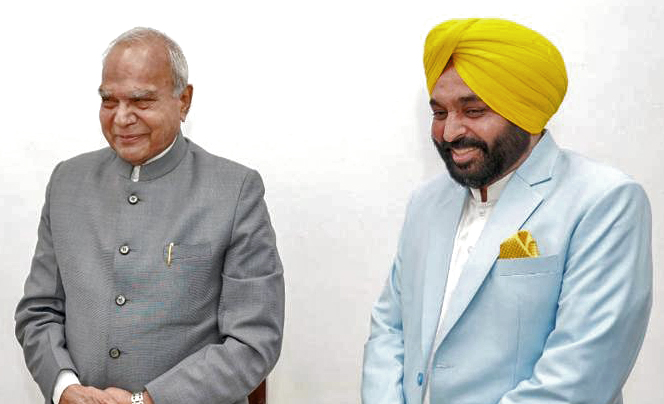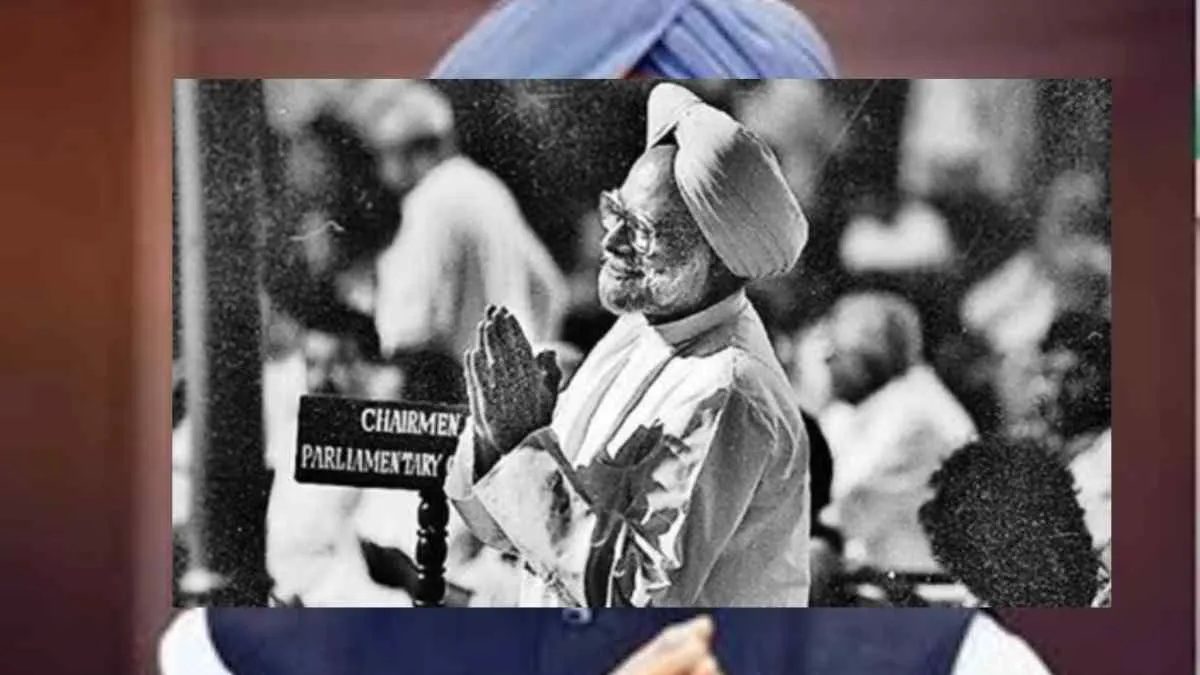Banwarilal Purohit, the Punjab Governor, addressed a strongly worded letter to Chief Minister Bhagwant Mann, telling him that if his letters are not replied, he may recommend President’s control in the state and commence criminal proceedings.
In his latest communication to Mann, Governor Purohit reiterated that he was not getting any reply from him on his previous letters, and warned him that he could send a report to the President on “failure of constitutional mechanism.”
“I am pained to point out that there is reason to believe that there is failure of the constitutional machinery in the state,” Purohit said in his letter to Mann. Purohit further requested that the Punjab Chief Minister act before making this “final decision” in accordance with Article 356 of the Constitution and Section 124 of the Indian Penal Code.
“Before I am going to take a final decision regarding sending a report to the President of India under Article 356 about the failure of the constitutional mechanism and take a decision about initiating criminal proceedings under section 124 of the IPC, I ask you to send me the requisite information sought for under my letters referred to above, as also in the matter of the steps taken by you concerning the problem of drugs in the State, failing which I would have no choice but to take action according to law and the Constitution,” the governor wrote.
With the invocation of Article 356, a state is brought under direct administration of the Centre, usually after the Governor sends a report.
Referring to the Constitution of India, he said, “Bound as I am by the duty placed on the Governor under the Constitution to see that the administration is carried on a level which would be regarded as good, efficient, impartial and honest and that the proposals enunciated by the government are not contrary to the Law of the Land, I have therefore to advise you, warn you and ask you to respond to my letters referred to above and give me the information sought by me.”
He also reminded Mann about his August 1 letter, seeking answers to his questions, Governor Purohit said, “You have still not given the information sought by me. It appears that you are deliberately refusing to give me the information asked for by me.
“I regret to note here that in spite of the clear provisions of Article 167 of the Constitution of India which makes it mandatory for the chief minister to furnish all such information relating to the administration of affairs of the state as the Governor may call for, you have failed to supply the information sought by me.”
He continued “I have received reports from various agencies regarding the rampant availability and abuse of drugs in Punjab. It is common knowledge that they are available in chemist shops, a new trend is observed that they are being sold in the government-controlled liquor vends.
“Recent action by the Narcotics Control Bureau (NCB) and Chandigarh Police have sealed 66 liquor vends in Ludhiana who are selling drugs, in a joint operation,” Purohit said, adding that these facts point out the breaking down of the law and order system in Punjab so much so that now villagers have started protesting on the streets in large numbers and decided to set up their own village defence committees to protect themselves from drugs.”
“Please send a report concerning the action taken by you in the matter of these drugs to my office immediately,” he directed.
The Governor has also reminded Mann of a Supreme Court judgment dated February 28, 2023, in which the apex court “observed that both the chief minister and the governor are constitutional functionaries who have specified roles and obligations earmarked by the Constitution and that the governor has a right to seek information from the chief minister in terms of Article 167(b) on matters relating to the administration of the affairs of the state and proposals for legislation”.













